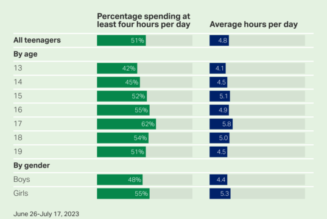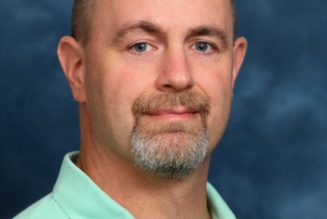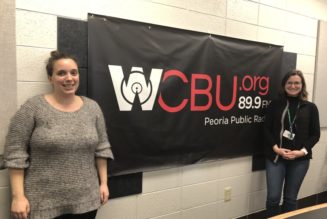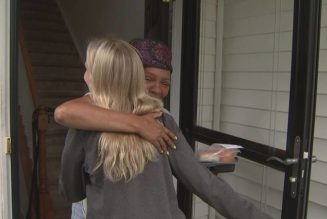
News from NYU Langone Health
East Hills Wife Donates Kidney to Husband at NYU Langone in Manhattan
*Subscription required. Please see full text at end of report.
Newsday – August 27
-Robert Montgomery, MD, DPhil, the H. Leon Pachter, MD, Professor of Surgery, chair, Department of Surgery, Division of Transplant Surgery, director, NYU Langone Transplant Institute
A Multidisciplinary Approach to Early Lung Cancer: Meet the Team
(Free log-in required)
Medscape – August 25
-Daniel H. Sterman, MD, the Thomas and Suzanne Murphy Professor of Pulmonary and Critical Care Medicine, Department of Medicine, Division of Pulmonary, Critical Care and Sleep Medicine, professor, Department of Cardiothoracic Surgery, Perlmutter Cancer Center
-Abraham Cahchoua, MD, the Antonio Magliocco, Jr. Professor of Medicine, Department of Medicine, Division of Hematology and Medical Oncology professor, Department of Urology, Perlmutter Cancer Center
-Elaine Shum, MD, assistant professor, Department of Medicine, Division of Hematology and Medical Oncology, Perlmutter Cancer Center
-Amie J. Kent, MD, clinical assistant professor, Department of Cardiothoracic Surgery, Perlmutter Cancer Center
-Benjamin Cooper, MD, assistant professor, Department of Radiation Oncology, Perlmutter Cancer Center
A Multidisciplinary Approach to Early Lung Cancer: Timing Treatment
(Free log-in required)
Medscape – July 3
-Daniel H. Sterman, MD, the Thomas and Suzanne Murphy Professor of Pulmonary and Critical Care Medicine, Department of Medicine, Division of Pulmonary, Critical Care and Sleep Medicine, professor, Department of Cardiothoracic Surgery, Perlmutter Cancer Center
-Abraham Cahchoua, MD, the Antonio Magliocco, Jr. Professor of Medicine, Department of Medicine, Division of Hematology and Medical Oncology professor, Department of Urology, Perlmutter Cancer Center
-Elaine Shum, MD, assistant professor, Department of Medicine, Division of Hematology and Medical Oncology, Perlmutter Cancer Center
-Amie J. Kent, MD, clinical assistant professor, Department of Cardiothoracic Surgery, Perlmutter Cancer Center
-Benjamin Cooper, MD, assistant professor, Department of Radiation Oncology, Perlmutter Cancer Center
Three Signs of Heart Problems in Kids Every Parent Should Know About
Huff Post – August 27
-Achiau Ludomirsky, MD, professor, Department of Pediatrics, Division of Pediatric Cardiology
Five Surprising Physical Signs of Anxiety
This article was picked up by news websites across the country.
Yahoo! Life – August 26
-Thea Gallagher, PsyD, clinical assistant professor, Department of Psychiatry
Why Collagen Production Matters So Much – and How to Increase It.
USA Today – August 26
-Mary L. Stevenson, MD, associate professor, the Ronald O. Perelman Department of Dermatology
Researchers Find AI Improves Breast Cancer Detection by 20%
Dark Daily – August 25
-Laura Heacock, MD, member of the faculty, Department of Radiology, Perlmutter Cancer Center
What It Means When People See Ghosts Before Death
Health Digest – August 27
-Sam Parnia, MD, PhD, associate professor, Department of Medicine, Division of Pulmonary, Critical Care, and Sleep Medicine
Marc Siegel Discusses Cancer Diagnoses Among Young Americans
FOX News Rundown Podcast – August 28
-Marc K. Siegel, MD, clinical professor, Department of Medicine, Division of General Internal Medicine
*Newsday, August 27, 2023 – East Hills wife donates kidney to husband at NYU Langone in Manhattan – Titus Abraham and his wife, Anita, have known for the past 17 years that one day he would need a kidney.
When the time came in July that the East Hills man needed a transplant, there was no question, and no discussion, that it would come from his wife.
“We’ve been married a long time. We didn’t have to have that conversation,” Anita Abraham said. “It didn’t have to click that I would be the donor; it clicked that I’m going to try. Right? That I have to try.”
The couple, both 48, have been married for 22 years and are the parents of three girls, 13, 16 and 19. They knew time was of the essence to have the surgery that could potentially double Titus’ life expectancy.
Titus, a banking director at Deutsche Bank in Manhattan, was first diagnosed in 2006 with IgA nephropathy, a slowly degrading chronic kidney disease that eventually reduced his kidney function to 15%.
His blood type is B positive, which doctors told him would put him on a national kidney registry list, waiting on average for about six years for a match.
His wife, a Flushing, Queens, high school English teacher, has Type O blood, which worked as a match for a kidney. Rather than wait for another living or a deceased donor, the match enabled the couple to schedule the surgery July 10 at NYU Langone’s Tisch Hospital in Manhattan.
“It was a big relief for me because to be honest, I didn’t feel comfortable asking people to be a donor. It’s just my own feeling, I just wouldn’t want to go through that,” Titus said. “I got lucky that she was a match and I didn’t need to go through that scenario.”
Organ donations from living people are relatively rare, said Dr. Robert Montgomery, who performed the surgery and is the director of the NYU Langone Transplant Institute. He said there are only about 5,000 living transplants per year nationwide, and about 15% to 25% of those are from spouses.
He said by receiving a living donation from his wife, Titus has a chance to double his life expectancy while he otherwise may have needed two kidney transplants from deceased donors. Those organs function for only about 10 years.
Montgomery noted Titus got his transplant preemptively before he was in dire need. He said a transplant also can save lives from many end-stage kidney diseases, and when completed early enough, save patients from the toll of dialysis.
“When we see spouses very enthusiastic about helping their husband or wife, it’s such a big deal because it can be a drain on the whole family to experience dialysis and renal failure,” Montgomery said. “It’s a wonderful gift and keeps giving; they’ll go back to a pretty normal lifestyle and it won’t be as difficult a life.”
Anita underwent a series of tests to make sure she qualified as a match and they planned the surgery at first for the fall, until Montgomery told them it needed to happen as soon as possible to avoid further kidney damage.
Titus wasn’t eligible to join the transplant list until his kidney function dropped below 10%, he said. But it quickly dropped from 19% to 14%.
“I was like, ‘OK, you need a kidney, we’ll deal with it later.’ It’s not a problem that we had to deal with currently,” Anita said. “Because when you have children, the pressing concerns of the kids, you don’t worry about that. And then it started being a concern, particularly since he started being concerned about the surgery itself, and the transplant process.”
The surgery itself was rather simple, the couple and Montgomery said.
The Abrahams were kept separately and each given their own team of surgeons.
Anita went into surgery first. Afterward, they chatted with each other via FaceTime from separate hospital rooms.
Much of the last 16 years “were probably spent worrying about this, which in the end became a very, very simple surgery,” Anita said.
Titus was hospitalized for about five days and Anita was released after three days. She said she was in more pain than he was, but she recovered more quickly. She can now resume her regular life, but she and her children must avoid large crowds.
Titus must remain quarantined for about three to four months and take medication for the rest of his life, but he is expected to live a healthy life sharing his wife’s kidney.
“Hopefully, some of her good traits will rub off on me in the next several years,” he said.
“No returns, no refunds,” Anita joked and asked what kind of gift he’s going to give her for saving his life.
“Now I think we have 20 more years, but you’ve got to pack those good 20 more years with something. You’ve got to do worthwhile things, fun things, engaging things, and not waste the time that you’re given,” Anita said. “You don’t want to waste that time that you get.”









